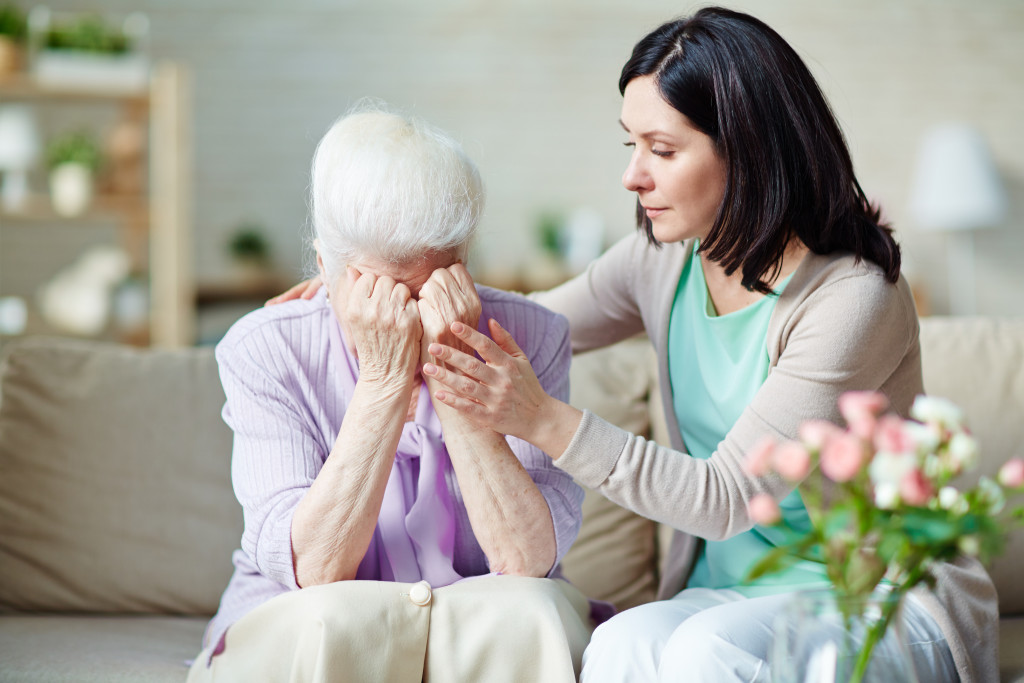• Seniors are more likely to suffer from depression due to physical health issues, loneliness, and decreased cognitive abilities.
• Family members and social services organizations can provide vital support to help seniors cope with loneliness.
• Implementing healthy habits such as exercising, eating a balanced diet, and getting enough sleep can help improve mental health in seniors.
• Regular check-ups with a doctor can help identify and address potential physical or mental health issues.
• Professional care in a hospice setting can provide the social activity, medical attention, and psychotherapy needed to prevent or manage depression symptoms.
Mental health is an essential topic for people of all ages, but it’s especially important to keep in mind when it comes to seniors. Older adults are more vulnerable to depression and anxiety due to various factors, including physical health issues, loneliness, and decreased cognitive abilities. It’s essential to recognize the signs of depression in seniors so that they can get the help they need.
Physical Health Issues
Physical health issues can be a significant cause of depression in seniors. As people age, their bodies become more fragile and susceptible to disease and injury. This can lead to chronic pain and decreased mobility, which may contribute to feelings of frustration or despair.
Additionally, many seniors take multiple medications for various conditions; this can increase their risk for side effects such as confusion or fatigue, which can also lead to depression.

Loneliness
Many seniors live alone or isolated from friends and family due to illness or geographic distance. Loneliness is a significant risk factor for developing depression; however, it can be addressed with the help of family members and social services organizations like Meals on Wheels or church groups.
Additionally, there are many ways for seniors to stay connected with friends and family through technology, such as video conferencing apps or online games.
Decreased Cognitive Abilities
Seniors are also at higher risk for developing cognitive impairment due to age-related changes in the brain. This can make it difficult for them to follow conversations or remember details about their day-to-day life. These mental challenges can lead to frustration and helplessness, contributing to depression.
Some medications used by seniors may also impair their cognitive abilities further; this is why it’s essential for them (and their caregivers) to be aware of any potential drug interactions before taking any new medications.
Loss
Lastly, seniors are more likely to have recently experienced a significant loss, such as the death of a spouse or close friend. This can be an especially difficult transition, leaving them empty and lonely.
Importance of Early Intervention
Early intervention is key in treating depression in seniors because it allows them access to resources before their symptoms become more severe or disabling. Recognizing signs of depression early on allows people to provide necessary support and access appropriate treatment options. Here are some ways to prevent depression among seniors:

Social Activity
Encouraging seniors to engage in social activities can also benefit their mental health. This could include volunteer work, classes, or meeting up with friends regularly. Connecting with others and being active can help seniors stay positive and keep their minds fresh and engaged.
Healthy Habits
Establishing healthy habits such as regular exercise, eating a balanced diet, and getting enough sleep can help to improve overall mental health in seniors. Additionally, reducing alcohol or drugs can help reduce depression symptoms.
Regular Check-Ups
Regular check-ups with their doctor are also important. These check-ups can help identify and address potential physical or mental health issues before they become more serious.
Professional Care
In most instances, it might be better for seniors to get the professional care they need in hospices. A reliable hospice care center can give seniors the social activity they need, provide medical attention in an emergency, and provide the psychotherapy needed to process grief or other emotional issues. All of these can help them prevent depression or manage its symptoms.
It’s important for everyone—especially those who care for elderly loved ones—to be aware of the risks associated with senior depression to support the aging population better. With proper resources and support networks in place, people can help ensure that seniors receive the care they need during this often trying time. If you suspect someone you know is struggling with mental health issues related to aging, please reach out for professional help immediately so that they can get the support they need!
Seniors are particularly vulnerable to depression due to physical health issues, loneliness, and decreased cognitive abilities.


